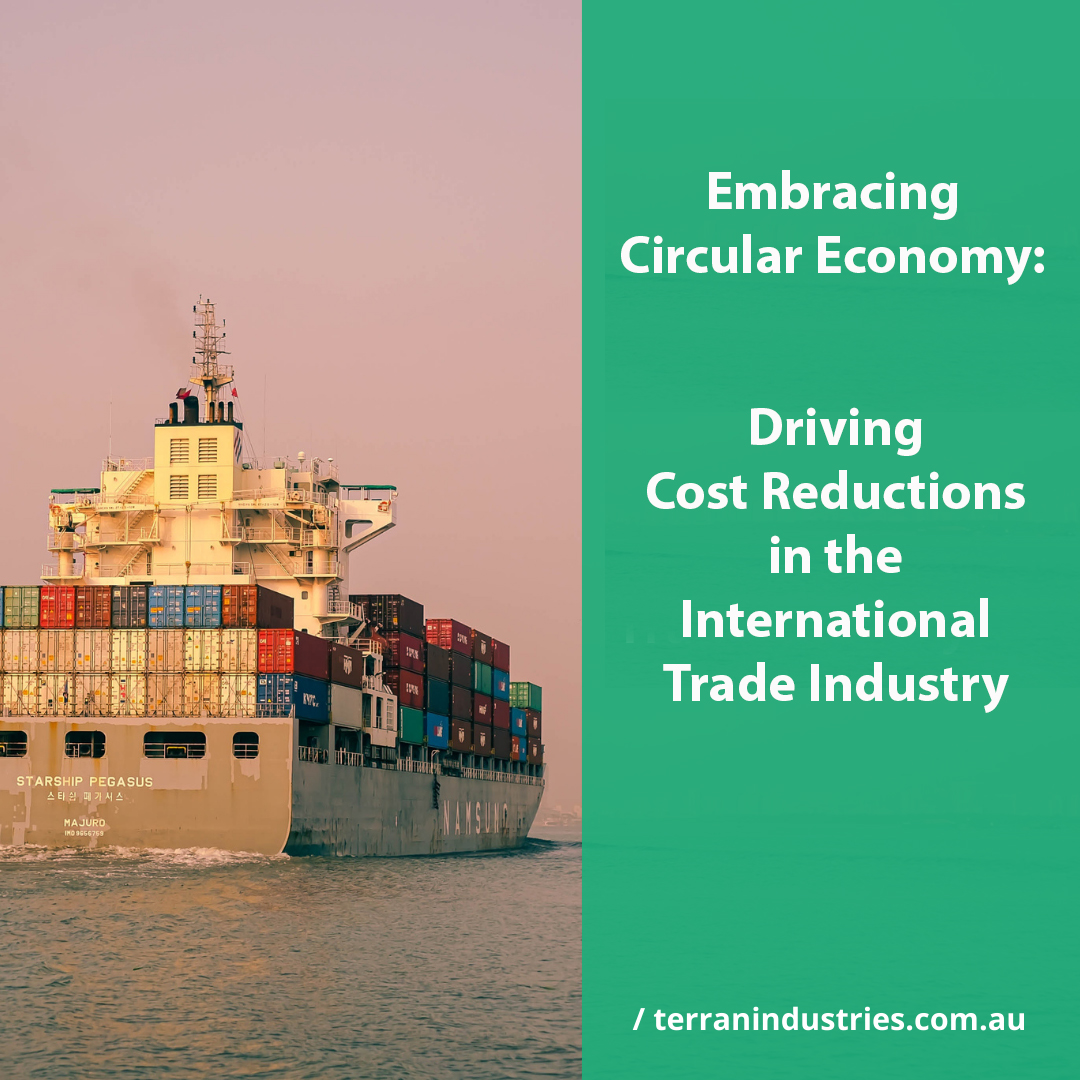BusinessCircular EconomySupply ChainRecyclingEmbracing Circular Economy: Driving Cost Reductions in Trade

In today's globalised world, the international trade industry plays a vital role in connecting economies and facilitating the exchange of goods and services.
However, with growing concerns about resource depletion and environmental degradation, it is crucial for businesses to adopt sustainable practices.
The implementation of a circular economy framework offers a promising solution, enabling the international trade industry to reduce expenditures while fostering environmental stewardship.
Understanding the Circular Economy:
The circular economy is an economic model that aims to minimise waste and maximise the value of resources by keeping them in use for as long as possible. Unlike the traditional linear economy, which follows the take-make-dispose pattern, the circular economy emphasises recycling, reusing, and regenerating materials and products.
Reducing Expenditures through Circular Practices:
Extended Product Lifecycles: In the international trade industry, products often have short lifespans due to changing trends, technological advancements, or obsolescence. By implementing circular practices, businesses can focus on designing durable products, facilitating repair and refurbishment services, and encouraging product reuse.
Extending product lifecycles reduces the need for frequent replacements, leading to significant cost savings for both manufacturers and consumers.
Resource Efficiency: The international trade industry heavily relies on the extraction of raw materials, energy consumption, and water usage. Through circular economy principles, companies can optimise their resource efficiency by adopting techniques such as eco-design, where products are designed with materials that are easy to recover and recycle.
By minimising waste generation and optimising resource utilisation, businesses can reduce their expenditures associated with raw material procurement and waste management.
Supply Chain Optimisation: Circular economy practices encourage businesses to collaborate with suppliers and stakeholders to create closed-loop systems. By adopting reverse logistics, products can be recovered, repaired, and reintroduced into the market, reducing the need for new production.
This not only minimises resource extraction but also eliminates unnecessary transportation costs and packaging waste, resulting in substantial financial savings.
Product Innovation and Differentiation: Embracing the circular economy stimulates innovation and encourages businesses to develop new products and services. By integrating sustainable design principles, companies can create value-added offerings that cater to the growing demand for eco-friendly alternatives.
Innovative solutions such as sharing platforms, product-as-a-service models, and remanufacturing can open up new revenue streams while reducing costs through optimised resource utilisation.
Overcoming Challenges and Collaborative Efforts:
Implementing circular economy principles in the international trade industry requires concerted efforts from all stakeholders. Governments can incentivise businesses through policy frameworks that reward sustainable practices and penalise wasteful behaviours.
Financial institutions can offer favorable loans and investments to companies embracing circularity, fostering innovation and economic growth.
Additionally, collaboration between businesses, academia, and research institutions can drive knowledge sharing, technology advancements, and the development of circular business models.
Conclusion:
The international trade industry faces significant challenges related to resource depletion and environmental impact. By embracing the principles of the circular economy, businesses can reduce their expenditures while promoting sustainability and resilience.
Through extended product lifecycles, resource efficiency, supply chain optimisation, and product innovation, companies can unlock financial savings, enhance competitiveness, and contribute to a greener and more prosperous future.
Embracing the circular economy is not just an environmental imperative but also a strategic advantage for businesses operating in the global marketplace.

Evannah Jayne
Founder & CEO
A passion for sustainability and a desire to change the world, Evannah seeks to raise awareness of the important issues surrounding our planet today.
